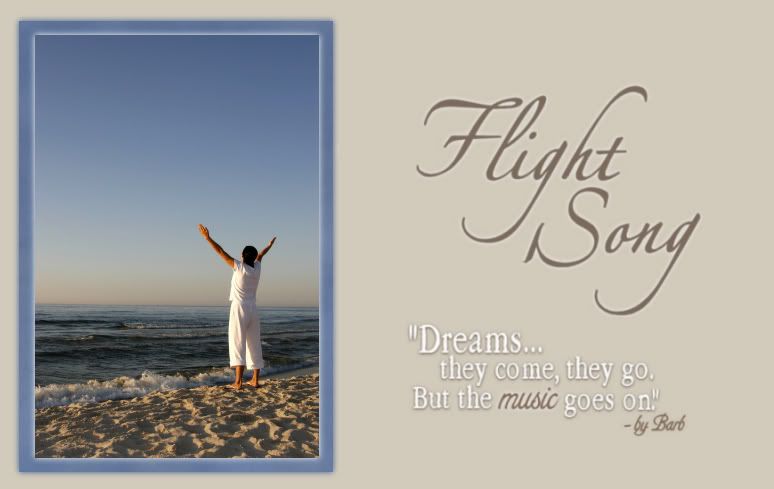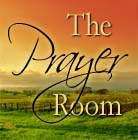Wednesday, October 25, 2006
# 1, The Beginning
Someone said I should tell my life story, for my family. I won't be throwing many exact dates your way. I'm not big on numbers. I'm more interested in people and places, than exact years and days.
On a red clay hill, not far from town, my grand father built his house. Sandy roads led to smaller houses, where my Dad's brothers and their families lived. In a poorer section of town GrandPa had rent houses. I was born in one of them, about four years after the Great Depression began.
It ravaged America. Few jobs existed. Produce was dumped at the train station, where people brought tubs and other containers they filled and took home. The WPA handed out dark flour and prunes and other staples. I thought I would never eat another prune, or dark biscuit again.
Some wore surviving the Depression like it was a badge of courage, but Grand Pa didn't. He just got up every day, and worked his gardens and fields and patches. Grand Ma worked hard, too. She sewed, she cooked, she slopped the hogs. She sold butter and eggs to those who could afford them. Until you ate her biscuits and home made preserves, you didn't know what good eating was.
Their yard seemed so big, and the barn did too. Grandma milked her cows there. For some reason they were considered hers. Hog pens housed little creatures that would become bacon and ham. There was a chicken house, too.
Over and across a road, a ways from the house, was a fenced pasture for the cows, and one old work horse. Maybe it was a mule. Sometimes Grand Pa let me ride it. He led it of course, but I thought I told it which way to go. Grand Pa tried explaining what gee and haw meant, but I understood about as much about that as I did numbers. I was still a little kid.
Near the front entrance to the house a staircase went far up a ways, then turned, and went farther, to the bedrooms. Quilts Grand Ma made were so heavy. She and Grand Pa had six sons, so she made many pairs of trousers, and didn't waste much of anything, certainly not wool material.
As I recall these memories, I want to tell you so much. I want you to see the fruit trees, and peanuts drying in the barn loft, still on their plants that looked like big globs of vines.
I could write a separate chapter about Grand Ma's sewing room, and Grand Pa's carpentry shed. My favorite place was the back porch. Outside a little ways from it, daffodils grew. A little farther than that, sand and sand burs waited for my bare feet. Until then, my childhood seemed safe.
In the front yard I would lie on the grass, and look up at the clouds. Grand Pa had taken me to church, where they talked about Heaven being in some far off place. If I could only look far enough I thought, I could see it. If I could have reasoned like an adult, I would have looked at those clouds and the daffodils longer.
On a red clay hill, not far from town, my grand father built his house. Sandy roads led to smaller houses, where my Dad's brothers and their families lived. In a poorer section of town GrandPa had rent houses. I was born in one of them, about four years after the Great Depression began.
It ravaged America. Few jobs existed. Produce was dumped at the train station, where people brought tubs and other containers they filled and took home. The WPA handed out dark flour and prunes and other staples. I thought I would never eat another prune, or dark biscuit again.
Some wore surviving the Depression like it was a badge of courage, but Grand Pa didn't. He just got up every day, and worked his gardens and fields and patches. Grand Ma worked hard, too. She sewed, she cooked, she slopped the hogs. She sold butter and eggs to those who could afford them. Until you ate her biscuits and home made preserves, you didn't know what good eating was.
Their yard seemed so big, and the barn did too. Grandma milked her cows there. For some reason they were considered hers. Hog pens housed little creatures that would become bacon and ham. There was a chicken house, too.
Over and across a road, a ways from the house, was a fenced pasture for the cows, and one old work horse. Maybe it was a mule. Sometimes Grand Pa let me ride it. He led it of course, but I thought I told it which way to go. Grand Pa tried explaining what gee and haw meant, but I understood about as much about that as I did numbers. I was still a little kid.
Near the front entrance to the house a staircase went far up a ways, then turned, and went farther, to the bedrooms. Quilts Grand Ma made were so heavy. She and Grand Pa had six sons, so she made many pairs of trousers, and didn't waste much of anything, certainly not wool material.
As I recall these memories, I want to tell you so much. I want you to see the fruit trees, and peanuts drying in the barn loft, still on their plants that looked like big globs of vines.
I could write a separate chapter about Grand Ma's sewing room, and Grand Pa's carpentry shed. My favorite place was the back porch. Outside a little ways from it, daffodils grew. A little farther than that, sand and sand burs waited for my bare feet. Until then, my childhood seemed safe.
In the front yard I would lie on the grass, and look up at the clouds. Grand Pa had taken me to church, where they talked about Heaven being in some far off place. If I could only look far enough I thought, I could see it. If I could have reasoned like an adult, I would have looked at those clouds and the daffodils longer.






